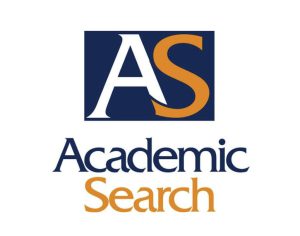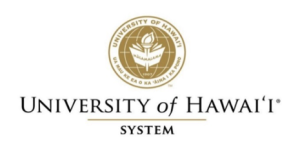Western Academic Leadership Forum Sidebar
Bridging Place and Purpose
These are the meeting resources from the 2024 Forum Annual Meeting which took place from April 3-5, 2024 in Honolulu, HI.
Building Pipelines: Engaging Data to Meet Workforce Needs
Learner enrollment engagement and intensity trends over the past few years as reported by the National Student Clearinghouse (NSC) have been providing clear signals on how the role and purpose of 4-year higher education may be evolving. In this discussion, Rick Torres, NSC CEO will highlight these trends and provide some insight into new data and examples of how higher education entities are looking to create new apertures of purpose and place supporting the evolving edu-workforce ecosystem demands.
Keynote Speaker: Rick Torres, National Student Clearinghouse
Weaving Linguistic Diversity Policies and Support Through Writing Programs
This session will provide information on linguistic bias and diversity in college writing programs and show how the writing programs at Nevada State University revised their English Self-Placement methods and first year Composition outcomes, and developed practices to support linguistic justice and the institutional mission as an HSI/MSI/AANAPISI.
Speaker: Laura Decker, Nevada State University
Back to the Basics, Without the Barriers
The University of Guam has taken steps to revisit administrative and student services processes to identify barriers to student success. Through WICHE’s No Holding Back project, UOG had the opportunity to focus on an academic year’s student data to identify the various holds placed on students which prevented registration, transcripts, or both.
Speaker: Marlena Pangelinan, University of Guam
Core Competencies, Curriculum, Careers: How Humanities Students Can Excel in the Marketplace of Ideas
At University of Alaska Anchorage, the College of Arts and Science is relaunching its internship program to be clearer, more equitable, and more consistent. Internships are an unparalleled opportunity for students to use skills learned in the classroom into other settings and makes the connections between the classroom and careers visible and explicit.
Speaker: Elizabeth Dennison, University of Alaska Anchorage
Building Equitable and Sustainable HIPs across the Curriculum
This session will explore the ways in which Central Washington University is working to integrate sustainable, developmental and equitable High Impact Practices across the curriculum. Presenters will cover their work on a summer institute, mapping HIPs to the curriculum and helping to create equitable spaces where HIPs thrive.
Speakers: Michelle DenBeste, Central Washington University, Pamela McMullin-Messier, Central Washington University
Using a Collaborative Approach to Address Rural Recruitment and Retention for Students and Faculty
Despite the national downward trend in enrollment, the University of North Dakota has increased student recruitment and retention at a rural, midsize flagship university. Working collaboratively, emphasizing place, and focusing strategically on community, inclusion, belongingness, and purpose, have helped the university meet and exceed expectations.
Speakers: Janelle Kilgore, University of North Dakota, Karyn Plumm, University of North Dakota, Randi Tanglen, University of North Dakota
Transactional to Transformative: Resetting the Value of Higher Education in a Post-COVID, Skills-Focused World
This session will examine the ways in which students’ experience during the pandemic has created a highly transactional mindset with respect to higher education and the value of a college degree. This session explores this dynamic and will discuss ways institutions can foster an understanding and appreciation of the transformative value of college education.
Speaker: Adam Bradford, Idaho State University
Making “Open” the Default for Postsecondary Education
The goals of the session are for attendees to engage in conversations on the value of making “Open” the default for our postsecondary institutions. “Open” can represent not only Open Educational Resources (OER) but the open ecosystem, which can include open content, courseware, knowledge, pedagogy, and new open technologies. Conversations will lead attendees to widen their view of how “open” can become an innovative tool to meet several institutional needs of interest to administrators and serve students and faculty needs.
Speakers: Liliana Diaz, WICHE, Billy Meinke, University of Hawai’i System, Wayde Oshiro, Leeward Community College, Sunyeen “Sunny” Pai, Kapiolani Community College
Lessons Learned on Responding to Campus-Wide Emergencies
In 2023 universities needed to respond to a significant number of emergency situations, both domestically and internally. Whether it is the devastating fires in Maui, the December 6th shooting at UNLV, or the international crises in the Ukraine, these emergency situations continue to impact students, staff, and faculty on our campuses. This session will discuss some of the lessons learned from addressing these tragedies and how to provide on-going support to the campus community.
Speakers: Debora Halbert, University of Hawai’i System, Kate Hausbeck-Korgan, University of Nevada, Las Vegas
Colleague’s Choice Innovation Award Winner
The Western Academic Leadership Forum is pleased to congratulate the Montana University System for their innovative achievement in advancing equity through the Montana 10 Student Success Initiative. The award was accepted by Crystine Miller on April 4, 2024 at the 2024 Forum Annual Meeting on behalf of the Montana University System.




